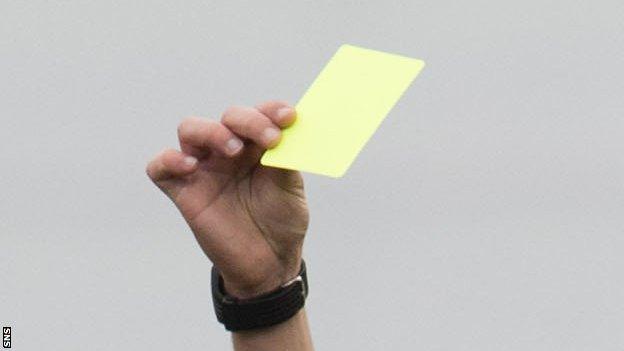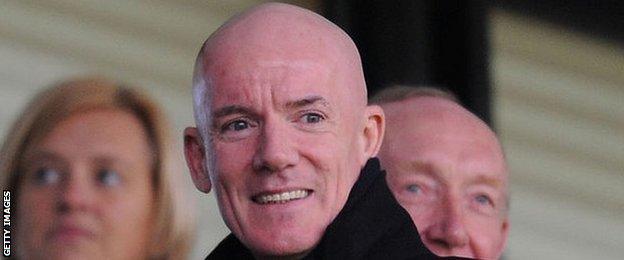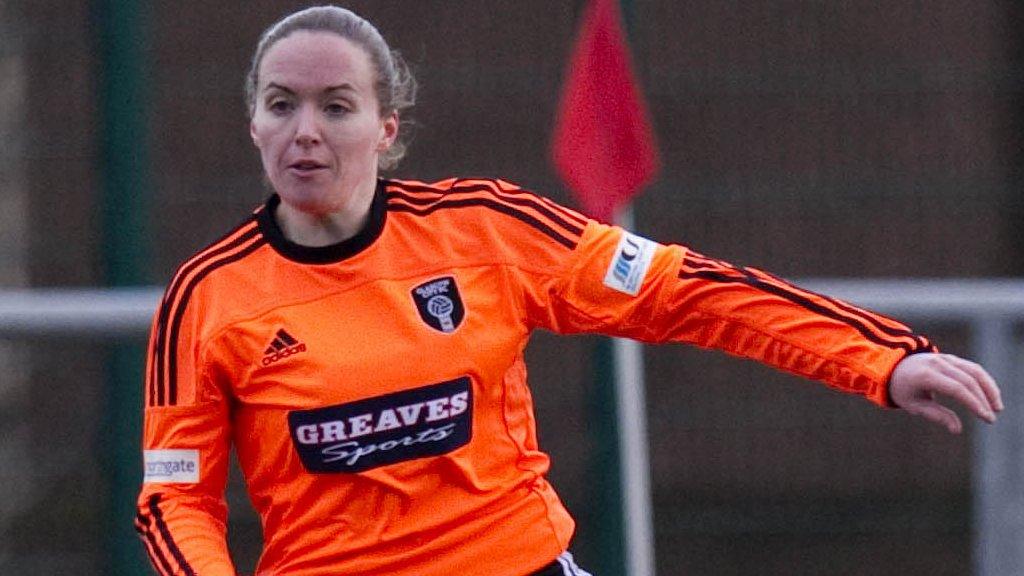Dermot Gallagher sees merit in yellow cards 'sin bin' trial
- Published

Yellow cards for dissent will result in a "temporary dismissal" in an upcoming FA trial
Former referee Dermot Gallagher believes plans to trial 'sin bins' may help improve the way disciplinary action affects clubs.
The Football Association is to conduct a trial in England's lower leagues.
The "temporary dismissals" will only apply to yellow cards shown for dissent, and will see players leave the field for 10 minutes.
"It's a chance to see a little change, it's an experiment," Gallagher told BBC Radio Scotland's Sportsound.
"It might be in years to come we go, 'well it doesn't work, but at least we've tried it'.
"One of the suspension problems we've got is, if the player gets two yellow cards in a game and gets sent off, he doesn't serve a ban against the team he committed the fouls or dissent against, he actually commits it against their rivals [in a subsequent game]."
The trial will take place in the bottom tier of English football's National League System and also be tested in Sunday League and male and female youth football.

Gallagher now works as a television pundit
Irishman Gallagher, 59, worked as an official in English football for more than 20 years and was asked if sin bins could be introduced in the professional game.
"It's not something you discount," he replied. "Football is moving, evolving, it's totally different to when I refereed 10 years ago. There are so many games now where you see a player have two yellow cards, and he hasn't really committed a bad foul, there are so many technical bookings.
"It might just be a way of calming that player down for 10 minutes, sending the message out to his team-mates that, 'we can't afford to be short of a player for 10 minutes', and saving second yellow cards.
"With experimenting at the lower levels I think it's quite a good idea. Most of the local parks referees are young lads coming into the game; they're new and limited in their experience of refereeing and their life skills because they are teenagers, early 20s.
"I think players try to take them on a little bit. If suddenly one of these lads took umbrage to something that was said to him and whizzes a player off for 10 minutes, the message that will be sent out will be, 'blimey, we're not going to do that again'. That's a big, big punishment."
- Published3 May 2017

- Published3 May 2017

- Published3 May 2017
